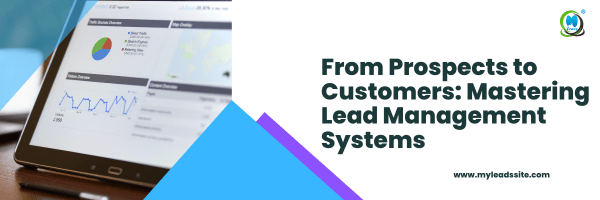Introduction to Lead Management
What is a Lead?
Ah, the good old lead – the lifeblood of any business. Imagine leads as seeds. Just as a seed has the potential to grow into a bountiful plant, a lead is someone who has the potential to become a customer. Essentially, it’s a person or company that’s shown interest in your product or service in some way.
Importance of Managing Leads
So, why should you care about managing these so-called leads? Picture this: you’ve got a sack full of seeds but no idea which ones will sprout. Similarly, not all leads are created equal. Managing leads effectively means knowing which leads to water, which helps you maximize the return on your marketing investments.
Lead Generation Tactics
Content Marketing
Content is king, right? Crafting insightful and engaging content not only positions your brand as an authority but also attracts prospects like bees to honey. Blog posts, eBooks, and webinars can be used to engage your audience and capture leads.
Social Media
Let’s take the party to where the crowd is! Social media is where your potential customers hang out. Engaging with them on platforms like Facebook and LinkedIn not only humanizes your brand but also helps in generating leads.
Email Marketing
Oldie but goldie! Email marketing remains one of the most effective lead generation strategies. But remember, no one likes spam! Personalized emails that speak to the prospect’s needs can work wonders.
Evaluating and Scoring Leads
The Lead Scoring System
Time to separate the wheat from the chaff! Lead scoring is a point-based system that ranks leads on their engagement and behavior. Essentially, it’s like grading your leads to find out who’s the most likely to become a customer.
Determining Sales-Ready Leads
Those leads that score the highest? Those are your golden geese! These sales-ready leads are the ones that your sales team should focus on to convert them into paying customers.
Nurturing Leads
Crafting Personalized Campaigns
Ever heard the phrase, “Make it personal”? When it comes to nurturing leads, personalization is the key. Crafting campaigns that speak to the unique needs and interests of your leads keeps them engaged and moves them down the funnel.
Automating the Follow-Up Process
Time is money, friends! Automation tools can help save time and ensure that you’re constantly engaging your leads without having to manually send out communications.
Choosing the Right Lead Management System
Key Features to Look For
What should your lead management system be able to do? Features like lead scoring, integration with CRM, and analytics are a few things to look for.
Integration with Other Tools
Your lead management system shouldn’t be an island. It should play nice with the other tools you use in your marketing and sales efforts.
Measuring the Success of Your Lead Management System
Key Performance Indicators (KPIs)
Are we there yet? To know if your lead management system is doing its job, it’s important to measure its performance. Look at KPIs like conversion rates, ROI, and customer acquisition costs.
Conclusion
The journey from prospects to customers is like navigating a maze. With the right lead management system, you can effectively guide leads through this maze. Remember, it’s not just about generating leads; it’s about nurturing and converting them into customers.





Zaproxy dolore alias impedit expedita quisquam.